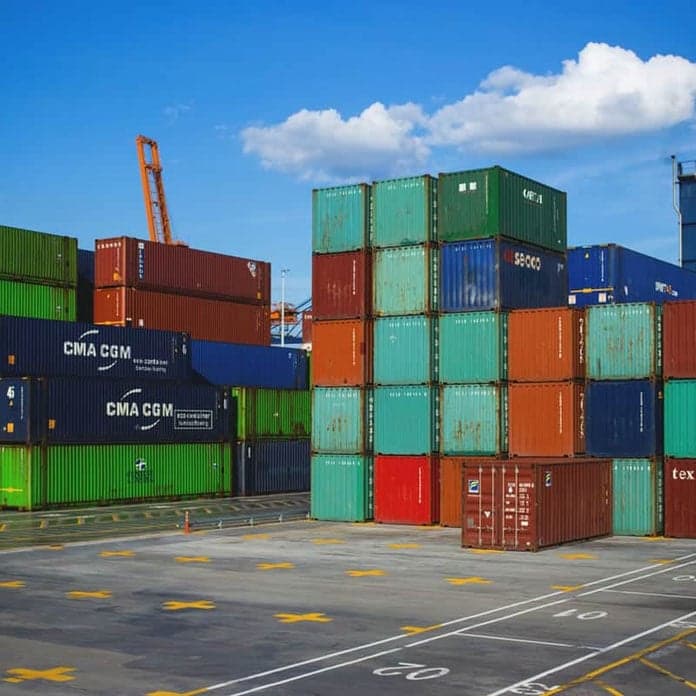The Danish firm Novo Nordisk confirmed on Monday, January 30th its investment of 144.5 million dollars to employ about 100 academics and scientists to perform research and treatments for type 2 diabetes. This investment has helped raise the economic standard of the UK which has been on a decline since the announcement of the Brexit. The research will occur in Oxford, but any new treatments are likely to be developed and produced in Denmark. This will help both countries economically, and boost confidence for further investments.
globalEDGE Blog Archive January 2017
Publish Date:
China has recently stated its intentions to produce rain over five dry provinces in the country’s northwest. To accomplish this, the Chinese government plans to use a technique called cloud seeding. Cloud seeding involves inserting a substance, usually silver iodine or dry ice, into a cloud. The goal of this is to alter the precipitation the cloud produces. The most common way for China has practiced cloud seeding in the past is to disperse silver iodide into the sky in the location which rain was desired. In early 2009, China experienced a three day long continuous snowfall which ended its longest period of drought in nearly 40 years. China hailed this result as a great success for their cloud seeding program; however, many scientists dispute claims that cloud seeding works at all. Other scientist point to events like China’s incredibly heavy 2009 snowfall as evidence that cloud seeding is effective in increasing precipitation levels.
Publish Date:
The Dow Jones Industrial Average hit 20,000 for the first time ever on Wednesday. Due to investors betting on higher interest rates and less regulation under our new president, banks have been seeing the most growth, with some stocks up nearly 30%. However, some economists are seeing red flags; have investors gotten too carried away?
Publish Date:
It is no secret that the new President of the United States, Donald Trump, favors protectionist economic policies. We are most used to hearing how his policies might affect relationships with China, Mexico, and Russia, but almost all countries will be impacted by the new president's policies. One of the countries who might see significant economic change from Trump's economy is India. India’s largest export, IT Services, face a particularly concentrated threat, and other industries such as pharmaceuticals also find themselves impacted by Trump’s America first policies.
Publish Date:
Following his first days in office, President Donald Trump has taken immediate action to reorder U.S. economic alliances, scheduling meetings with leaders from Mexico, Canada, and the UK. President Trump has emphasized trade deals to be one of his first priorities after entering office on Friday, January 20th.
Publish Date:
The globalEDGE team is proud to announce that we have revamped our website with a completely new design. We hope the new website will be easier for our users to maneuver while also better highlighting the sections of the site we feel are most useful. The new panel on the home page is part of this effort, and each week we will use this area to direct users to different areas of the site.
Publish Date:
China was able to achieve a 6.8% economic growth rate in the last quarter of 2016, which marks the end of its constant declining growth after more than 2 years. This boost was fueled by higher government spending and record bank lending. Overall, the economy grew at 6.7% in 2016, which is within the government’s growth target but still the slowest in 26 years.
Publish Date:
Many companies all over the world are concerned with the challenges of the hospitality industry including the threat of Airbnb, as well as social responsibility and liability complications. Airbnb is seen as an increasing threat to the hospitality industry and researchers predict that the company will eventually become a replacement for extended stay hotels, bed and breakfasts, rental sites, and corporate apartments. As Airbnb is continuing to grow, hotels are having a hard time maintaining their nightly and occupancy rates that they had the year before. Not only are companies like Airbnb a threat to the hospitality industry, but other challenges include liability alleviation and corporate social responsibility (CSR).
Publish Date:
As global business practices become increasingly digitized, industry sectors are forced to constantly adjust to their transforming infrastructures. This is especially felt within the hospitality industry, where technological mainstays are driving business on both a domestic and an international scale. Technology has allowed for further integration and optimization of industry practices, accelerating overall efficiency. Outreach efforts have also expanded, attracting more consumers to the industry and continually changing their personal engagements with procedures for lodging and travel. Here is a closer look at the various ways technology is shaping the future of hospitality.
Publish Date:
2017 will be an exciting year for the hospitality industry. In terms of booking methods, hotel design, and even locations, there will be many changes that impact the hotel portion of the hospitality industry. In no particular order, we have listed ten trends that 2017 will bring below.
Publish Date:
Destination cities in South America, like Bogota and Columbia, have registered double-digit tourism growth in the past year. A positive impact of the currency devaluations is that the exchange rates across the South American region have allowed an affordable opportunity for foreign travelers to go to South America. Investments in infrastructure are also helping to propel the hospitality industry because the improvements help increase access to various markets and boost travel in the region.
Publish Date:
This week, the globalEDGE blog will be taking an in depth look at the global hospitality industry, looking at the present trends in various sectors of the industry, as well as looking toward the future. For our purposes, we will consider the hospitality industry to be the collection of companies and businesses that cater to the needs of travelers. Major sectors include hotels, restaurants, and recreational businesses, such as casinos, sports and tourist attractions.
Publish Date:
China’s central bank, known as the Peoples Bank of China, or PBOC, is cracking down on the popular cryptocurrency Bitcoin, as part of their latest attempt to stem China’s capital outflow amidst the decline of the Yuan. The Chinese Yuan is currently under immense pressure due in part to the slowdown of growth in the Chinese economy and increasing uncertainty about its future prospects. The currency depreciated 6.6% against the US Dollar in 2016, and in order to prevent a further decline, the PBOC was forced to sell around $26 billion foreign exchange reserves. This selloff, coupled with the comparative rise of the US Dollar caused China’s reserves to fall to a six year low of $3.011 trillion.
Publish Date:
In December 2016 Nigeria once again became Africa’s top oil producer, producing just over 1.75 million barrels of oil per day. Before December, Angola had been Africa’s largest oil producer. Both countries are members of OPEC, the Organization of the Petroleum Exporting Countries, and in late 2016 OPEC agreed to cut their total oil production by 1.2 million barrels a day starting in January 2017 to keep oil prices at a stable point. Up to this time, however, Nigeria continued to increase their own production of oil. This is because Nigeria was exempted from cutting their oil production in the OPEC agreement. Many Nigerian oil facilities were attacked by militant groups upset with the current distribution of the profits the government makes off of their oil exports. Because of this Nigeria’s oil production has already decreased in 2016.
Publish Date:
Do you ever wonder how, or to what extent, your online activity is being tracked? While browsing the internet, ads often pop up on the sides of webpages that are suspiciously similar to recent searches or website visits; this happens because internet activity is tracked and gathered through cookies placed by first or third-party trackers. Third-party trackers first appeared in 1998, and their presence has been steadily increasing ever since. Are cookies placed by trackers something we should be worrying about?
Publish Date:
Sarah Singer, assistant director at the International Business Center at Michigan State University and manager of globalEDGE, was recently interviewed by Open to Export to discuss how globalEDGE can assist in market research for exporters. Highlighted in the discussion were especially useful resources for exporters on globalEDGE, such as our risk comparator tool, country trade statistics, and country indices. Sarah also offered advice for exporters who want to research potential new markets, and how globalEDGE can be an important tool for this research.
A link to the interview is available here: http://opentoexport.com/article/market-research-focus-globaledge/
Publish Date:
Have you visited the globalEDGE Business Beat recently? In last week's segments, Tomas Hult discussed a wide range of topics, including the refugee crisis and its impact on Turkey, Israel's relationship with the United States, and the current dynamics between the United States and Cuba. The Business Beat is hosted by Dr. Tomas Hult of the Broad College of Business at Michigan State University, and consists of brief audio segments that drive into current topics impacting the international business world. You can view past segments by date or by specific speaker on our page featuring the Business Beats.
Publish Date:
As winter vacations come to a close, the global workforce is underway again, and there are several questions business and corporate travelers have regarding their upcoming costs of travel and stay. Among the many factors, the future of international business travel remains uncertain due to the prolonged set back in the Chinese economy, the United Kingdom’s monumental vote to depart from the European Union, the controversial U.S. Presidential election, and increased security concerns across the globe. However, despite the uncertainties, global demand for air travel remains at a record high.
Publish Date:
Real estate investment trusts (REITs) are a type of investment vehicle which invests in real estate through property and mortgages, and similar to stocks, they can be traded on major exchanges. In the U.S., there are three major kinds of real estate investment trusts (REITs). Equity based REITs own and invest in properties, and are responsible for the value of their assets, and account for the majority of REITs. Mortgage REITs invest in and own property mortgages, and tend to either loan money to real estate owners for mortgages, or purchase mortgage-backed securities. Hybrid REITs are the third kind of REITs, and invest in both properties and mortgages.
Publish Date:
As many of us know, the North American Free Trade Agreement (NAFTA) played a significant role in the US elections, with president-elect Donald Trump clearly stating that he will renegotiate the agreement with Canada and Mexico in order to stop the outflow of middle-class jobs. Changes in NAFTA would transform the auto industry in the US since it allows automakers, as well as other suppliers, to move production to Mexico without facing any tariffs and take advantage of the lower labor costs.
Publish Date:
According to Eurostat, Eurozone inflation hit 1.1% last month, which is a sharp increase compared to November’s rate of 0.6% It is believed that this jump can be attributed to increased costs of energy, food, alcohol, and tobacco. This inflation rate is the highest that the Eurozone has seen in over three years; in September 2013, the rate was also 1.1%.
Publish Date:
Russia has been pushing to incorporate nuclear technology in medicine. This process, known as nuclear medicine, involves the use of radioactive substances producing dangerous radiations to gamma rays, beta particles, and alpha particles. Although it may be risky and unsafe, Russia’s increasing participation in the “international market for the production of medical isotopes” has brought tremendous success to the country in the means for fighting cancer.















